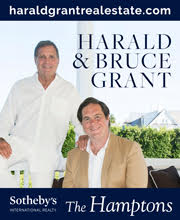In the News: Congestion pricing analysis from around the area and across the pond
I have my own analysis here, but if you want the upgrade, here’s more from media outlets and people smarter than I am from around the city and beyond:
There’s Only One Way to Fix New York’s Traffic Gridlock
This op-ed in the Times from Tribecan Charles Komanoff, a transportation analyst, and Gernot Wagner, a climate economist at the Columbia Business School, advocates for congestion pricing by answering opponents’ questions, like why should we pay for something that is now free? and how do we know the revenue will be used effectively by the MTA? and how do we know that congestion will actually be reduced? “Drivers all over the city and well beyond stand to gain from this plan. Yes, it will be painful to pay for something that has been free. But it is even more painful to spend hours idling in traffic, knowing that a better path beckons.”
Congestion Pricing Plan in New York City Clears Final Federal Hurdle
This Times story is a good overview and includes a section on the most vociferous opponents: “Experts say the program would make getting around New York more equitable: It would levy a fee on drivers who can, at least in theory, afford to pay it, while helping those with less, since people who rely on mass transit tend to have lower incomes. The plan is moving forward despite staunch opposition from taxi drivers, ride-share companies and suburbanites who do not want to pay to drive in Manhattan. The most vociferous outcry has come from New Jersey leaders, who have cast congestion pricing as evidence of a border war and threatened legal action.”
Get a Load of the Congestion Pricing Exemptions that Some People Want
Streetsblog sorted through the 900 pages of appendices in the environmental assessment to find a list of every requested discount for, or exemption from, congestion pricing. And then they annotated it with their own labels: † Yes †† Yes, but only a discount * No! ** Hell, no! *** The fuck no! and ¿ Huh?
How Might Congestion Pricing Actually Work in New York?
The Times runs through the practical issues on how the tolls will be collected, etc.
Congestion Pricing, the Route More Cities Are Taking
The Washington Post has an older story about the examples being set by other cities for lots of economic reasons: “Jammed roads have become a growing economic, health and environmental menace to societies, contributing every year to millions of premature deaths and costing vast sums in lost productivity (an estimated $87 billion in the US alone). To policy makers, that’s raised the allure of an option that not only can de-clog the streets and improve the air but also fill government coffers. Might congestion pricing become the norm for cities?”
MTA’s congestion pricing plan means big upgrades for NYC transit
Gothamist has a story on what the MTA will do with the revenue: “The money makes it possible for the MTA to pay for its planned $7.7 billion extension of the Second Avenue subway with three new stops in East Harlem. It enables the MTA to complete its Penn Access project, which aims to bring Metro-North trains into Penn Station and add four new stations in the Bronx. And it helps pay for work to make 70 subway stations and 12 Long Island Rail Road stations accessible with ramps and elevators.”
Two decades in, what can other cities learn from the London congestion charge?
The engineering firm Arup has a white paper on London’s 20-year-old congestion pricing plan. “London paved the way for congestion pricing in world cities – it has succeeded by being embedded in a wider transport strategy for the city, that is highly multi-modal in nature and clear on the outcomes it wants to achieve for the city.”
Debate Fact Check: Is Congestion Pricing Regressive?
Six years ago, City Limits did this story on why congestion pricing looks like a regressive tax but isn’t. “The fact is car owners in general are richer than non-car owners in the city, and low-income people in New York City are much more likely to ride mass transit or car pool than drive a car to work, and are somewhat more likely to do so than wealthier people. So while low-income people who do drive could be hurt by the tolls, most low-income people won’t be. What’s more, low-income people will generally benefit more than rich people from the transit improvements funded by the toll because low-income folks depend more on transit.”
New Jersey’s Senators Push Back on Congestion Pricing
The Times has a story from May, so before this last approval, on the most vocal opponents to the plan, noting that that senators Robert Menendez and Cory Booker have joined Gov. Phil Murphy and several members of the House of Representatives in speaking out against the plan, including Rep. Josh Gottheimer, who has been one of its staunchest critics, and Rep. Mikie Sherrill, who called it “an unfair hit against New Jersey families.”
New York’s long and winding road to congestion pricing
Vox has a story on why it all took so long — since it’s been 17 years since it was first proposed by Bloomberg. “Congestion pricing demonstrates two things: one, that the US can implement smart solutions to some of the most difficult climate and urban problems we face today. And two, that the byzantine review system we’ve created — ostensibly to protect the environment — has made it so, so, so difficult to do so.”
London’s Congestion Charge Is Showing Its Age
This Bloomberg story is pre-pandemic but it’s a useful analysis to see what worked and what didn’t. “After 15 years of existence, London’s method of congestion charging is dated. It needs to be bigger, longer and greedier.”

















My understanding is that Charles Komanoff is not a regular subway rider – he chiefly bicycles?
(Actually recall seeing a mention that he even bicycles to LaGuardia to pick up a rental car to drive to his second home?)
For what it is worth I am a bus and subway rider (don’t drive) – and definitely against CP.
To support the MTA would like increase in taxes on billionaires. pied a terres, ecommerce delivery.
BTW there is a ton of farebeating
Sorry – I forgot to thank the Editor for a great article…. Slowly adding some sense of clarity to what was a very confusing proposition. Q: What about people who live within these detection zones? Still way too many questions… I would like to add that the Federal DOT, Mr. Buttegieg and crew, approved this in Record time – especially for a Federal agency?. I think it was just a few weeks? This is being railroaded through… and it is very unfair for NYC Residents who already pay a premium for living here. It needs to be better balanced.